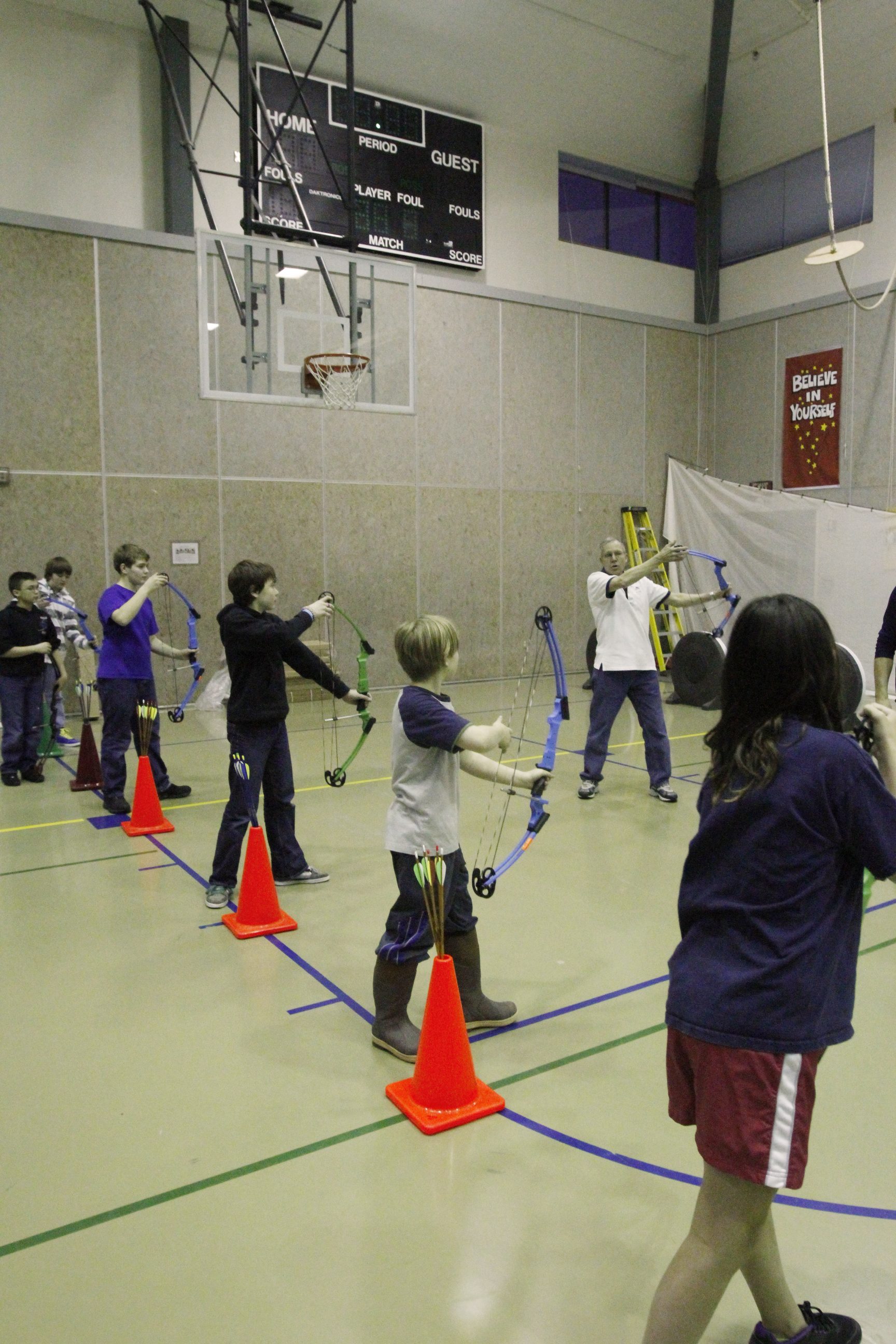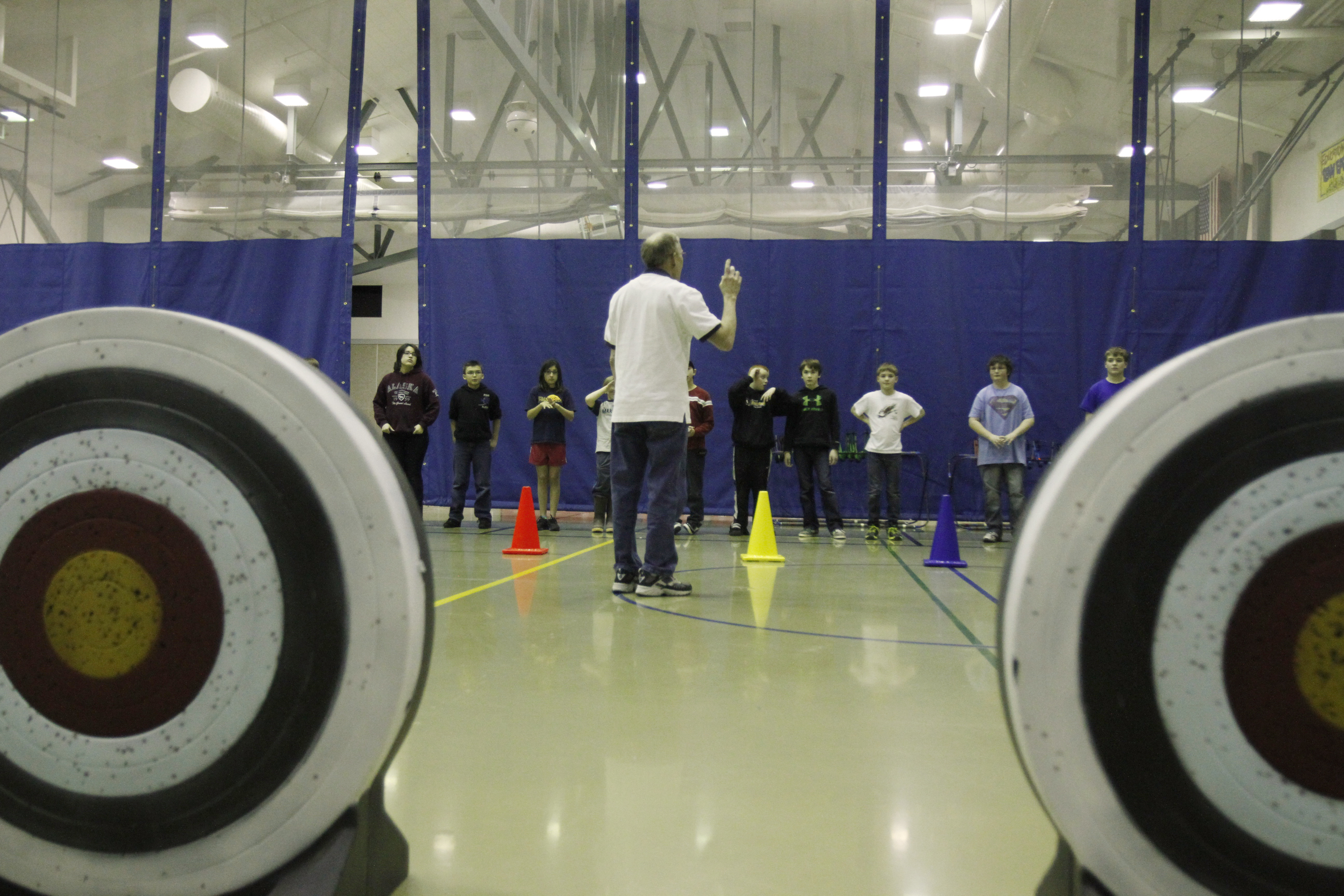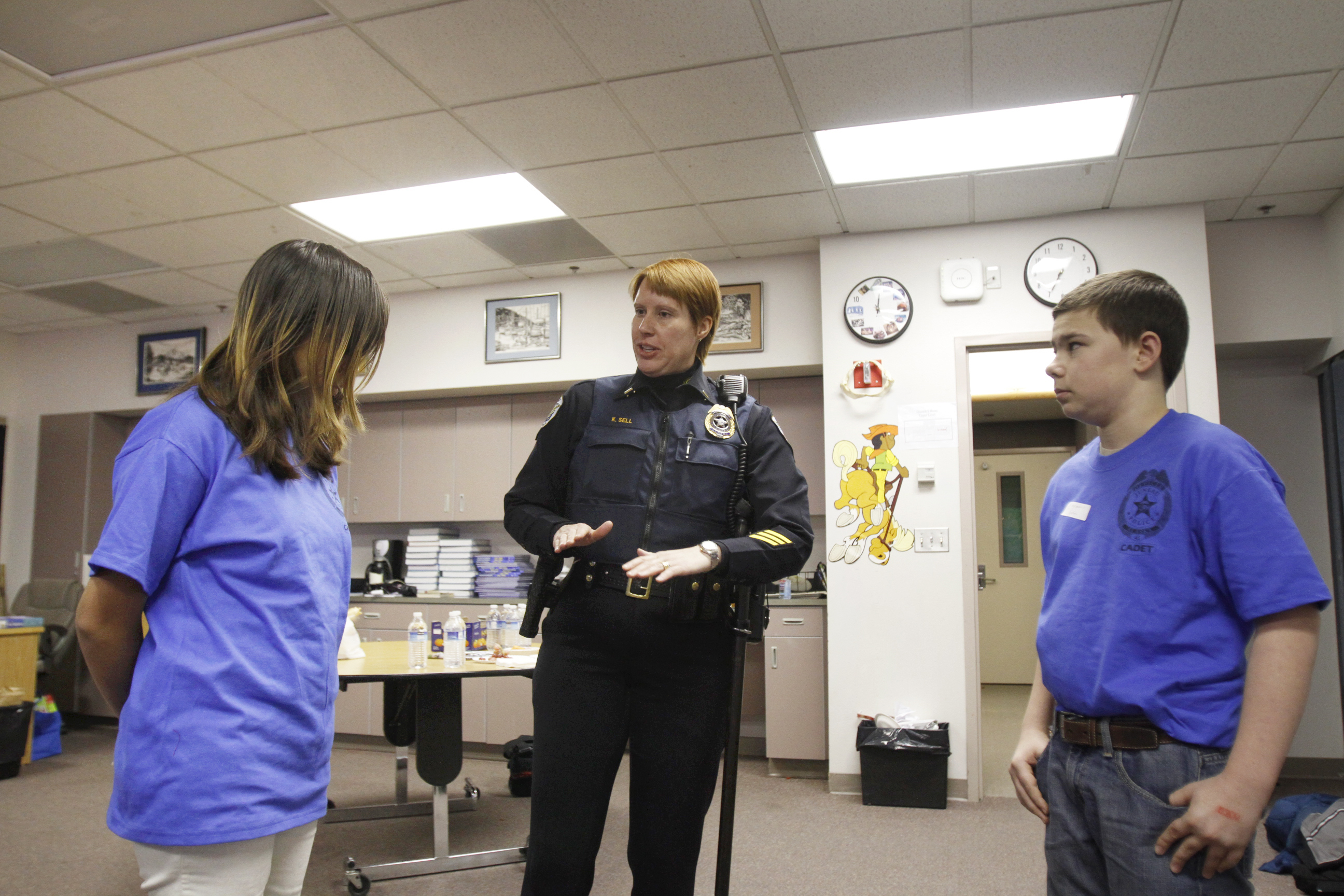
Juneau middle school students are learning to take photos, shoot arrows and babysit at a time when they would otherwise itch for something to do.
The new Juneau Afterschool Coalition has created an after school program at Floyd Dryden and Dzantik’i Heeni middle schools. The new program is called B.A.M – Body & Mind, Before/After Middle School.
Many middle school students had few alternatives to athletics between the end of their school day and their parents’ workday. A 2001 national YMCA study found youth delinquent activity triples during this time. The Juneau Boys and Girls Club once filled this gap, but that program ended in 2009.
The coalition plans to track how the new activities affect student success in school.
Eleven-year-old Capri Potter picks up her bow and takes aim.
Capri says without archery she’d probably read or watch TV at home.
“Mr. Haas was my old gym teacher and I’ve taken archery from him before and it was really really fun,” Potter says.
The archery students share the Dzantik’i Heeni gym with the wrestling team. Each archer shoots five arrows before heading home.
Six years ago, instructors Dick Fagnant and Dave Haas trained together in the National Archery in the Schools program. After they retired, they started teaching archery after school. Fagnant says, in December sixty-three students signed up for the class, which is capped at 40 people.
“So you have children who may not be successful in football or basketball but by golly their eye-hand coordination are really really keen,” Fagnant says. “So what happens is they find success here and so it’s an opportunity for them to expand their horizons in an activity that they’ll enjoy for perhaps the rest of their lives.”
The Juneau After school Coalition grew out of community concern after federal budget cuts closed the local Boys and Girls Club in 2009. In 2010, 17 organizations joined together to create after-school programs in Juneau middle schools. Elementary and high school students often have more after-school options. A coalition survey indicated only about half of Juneau middle-schoolers had adult supervision after school for up to two days a week.

Juneau Afterschool Coalition Coordinator Betsy Brenneman describes herself as the “go-between” for instructors and organizations. She organizes funding, helps new instructors as they start up a course and does all the publicity.
“And that’s what I’ve been doing for about a year, and we’ve really geared up this school year with the new activities. We had to put a lot of things in place, like an office,” Brenneman says.
The coalition polled students before offering activities to find what subjects would interest them. Brenneman was surprised to find many students wanted cooking classes. She’s looking for instructors to teach a cooking class at Floyd Dryden. Schools also offer babysitting training, photography classes, outdoor adventure games, learner’s permit preparation and junior police academy.
In a Dzantik’i Heeni classroom, Lieutenant Kris Sell uses stuffed animals to show students how police came to be a part of society.
14-year-old Catherine Johnson is participating in an after-school program for the first time. She says she would normally spend the time drawing or studying at home.
“I just wanted to keep myself busy and learn a couple new things. I was interested in what the police do and wanted to learn,” Johnson says.
Officer Sarah Hieb watched Sell’s presentation from the side of the classroom, occasionally piping in during the talk to suggest examples.
“We do a lot of hands-on activities because we know we don’t want to be sitting there like another classroom during school,” Hieb says.

Heib says the program helps students understand police work. She says students otherwise might only interact with police in stressful situations such as a car crash.
“It gets us into the schools and interacting with the students and letting them know that police officers are approachable, are normal people,” Hieb says.
Brenneman says she will survey students each May to find out what activities they’d like that might help them become more interested in school.
If it can be something that engages them, that they might find a career even, a mentor, somebody in the community, an adult who they connect with,” Brenneman says. “That may spark an interest that gets them more engaged even in school.”
Brenneman will track that engagement to an extent she calls “cutting-edge.” She plans to use a student records database to see whether students improve after attending the activities. If there isn’t an improvement, she says “okay, we won’t do it anymore.”
“We’re pretty sure it will, but we’d like to have somebody – us – figuring that out,” Brenneman says.
Students don’t have to pay to participate. The coalition relies on community groups and individuals for funding. Coalition member Kevin Ritchie says the program needs strong involvement from the school board and assembly. The coalition has raised about $110,000 to date.